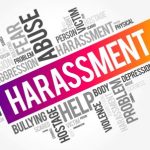Author Archives: Jay Butchko

What is an Article 81 Guardianship Proceeding in New York?
Do you have an aging parent or other elderly/vulnerable loved one who can no longer reasonably manage his or her own affairs? If so, they may need to be placed into the care of an adult guardian in order to protect their best interests. The process for doing so in New York State requires… Read More »

Can We Get Financial Support If We Take Care of an Elderly Parent in Our Home?
For many families in New Jersey, the decision for how to handle the care needs of an aging parent is a challenging one. You may be considering moving a parent who has elder care needs into your own home. This raises an important question: Can we get financial assistance for caring for an aging… Read More »

Does a Power of Attorney have to Be Notarized in New Jersey?
A power of attorney (POA) is one of the most important estate planning documents. It helps to ensure that a trusted person has the authority to act on your behalf if you are not in a position to do so. You may be wondering: Does your POA have to be notarized in New Jersey?… Read More »

Four Considerations When Picking the Executor for Your Will
Do you have a will? You Should. Your last will and testament helps to set the foundation for your estate plan. As part of your will, you will need to name an executor. An executor is a person named to manage the deceased estate. They are responsible for carrying out the instructions in the… Read More »

What to Bring for Your Initial Consultation for Wrongful Discharge with Poulos LoPiccolo PC
If you’ve experienced what you believe to be a wrongful discharge, scheduling an initial consultation with an experienced New Jersey employment attorney is an important first step toward protecting your rights. During this meeting, your attorney will evaluate your case, advise you on potential legal remedies, and guide you on the best course of… Read More »

Pregnancy-Related Disabilities and Workplace Discrimination: Know Your Rights
Pregnancy-related disabilities can create unique challenges for employees in the workplace, requiring adjustments to job duties, schedules, or other conditions to ensure a safe and equitable work environment. Federal and state laws, including the Americans with Disabilities Act (ADA) and the New Jersey Law Against Discrimination (NJLAD), offer robust protections for pregnant employees and… Read More »

When Denial of Reasonable Accommodation Becomes Disability Discrimination
Employees with disabilities are entitled to reasonable accommodations under both federal and state laws, including the Americans with Disabilities Act (ADA) and the New Jersey Law Against Discrimination (NJLAD). These accommodations are adjustments to the work environment or job duties that enable employees with disabilities to perform their essential job functions. However, when employers… Read More »

When Harassment Becomes Intolerable: Constructive Discharge Cases Under NJLAD
Constructive discharge occurs when an employee resigns due to intolerable working conditions that make continued employment impossible. Unlike wrongful termination, where an employer explicitly fires an employee, constructive discharge arises when an employer’s actions—or inaction—force an employee to quit. In New Jersey, the New Jersey Law Against Discrimination (NJLAD) provides a powerful framework for… Read More »

Sexual Harassment in Remote Work Settings: Legal Challenges and Protections
The rise of remote work has transformed the traditional office environment, providing flexibility for employees and employers alike. However, this shift has also introduced new complexities in managing workplace conduct, including sexual harassment. While harassment may seem less likely to occur outside of a physical office, virtual workplaces are not immune to inappropriate behavior…. Read More »

Third-Party Sexual Harassment: What Are Your Rights as an Employee?
Sexual harassment in the workplace is a pervasive issue, but it’s often misunderstood that harassment can come not just from supervisors or coworkers but also from third parties such as customers, vendors, or other non-employees. While employers may not directly control the behavior of third parties, they are still legally obligated to provide a… Read More »

